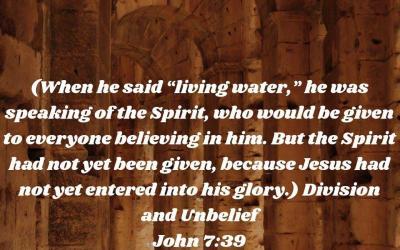Introduction
In times of crisis, we often seek to demonstrate sorrow and repentance outwardly. But God desires a deeper response—one that comes from the heart. Joel 2:13 (AMP) calls us to “rend your heart [in repentance] and not your garments [to show outward grief].” This passage challenges us to consider the sincerity of our repentance and our relationship with God.
Background and Context
- The Book of Joel is set during a time of great calamity, likely caused by a locust plague and drought, symbolizing God’s judgment on Israel.
- Joel’s central message is a call to repentance and return to God in anticipation of the Day of the Lord—a time of divine judgment and blessing.
- The imagery of tearing garments was a traditional expression of mourning, but God, through Joel, emphasizes the importance of heartfelt repentance over superficial rituals.
Key Points
1. God Desires Genuine Repentance (Joel 2:12-13)
- “‘Yet even now,’ says the LORD, ‘Turn and come to Me with all your heart [in genuine repentance], with fasting and weeping and mourning [until every barrier is removed and the broken fellowship is restored]. Rend your heart [in repentance] and not your garments.”
- True repentance requires an inward transformation, not just outward displays of sorrow.
- Example: A child saying sorry just to avoid punishment versus truly understanding and regretting their wrongdoing.
2. God’s Character Invites Us to Return (Joel 2:13)
- “Now return [in repentance] to the LORD your God, For He is gracious and compassionate, Slow to anger, abounding in lovingkindness [faithful to His covenant], And He relents [His sentence of] evil [when His people genuinely repent].”
- God’s grace and mercy are reasons to trust Him and return wholeheartedly.
- Example: A loving parent forgives a child who comes back with genuine remorse, not just to escape consequences.
3. Repentance Leads to Restoration (Joel 2:18-25)
- God promises blessings and restoration after repentance:
- Provision: “The LORD will answer and say to His people, ‘Behold, I am going to send you grain, new wine, and oil, And you will be satisfied in full.’” (Joel 2:19)
- Renewal: “I will restore to you the years that the [swarming] locust has eaten.” (Joel 2:25)
- When we return to God, He restores not just what was lost, but also our relationship with Him.
Practical Applications
- Evaluate Your Heart
- Are your expressions of faith sincere, or are they rituals without meaning? Spend time in prayer to align your heart with God’s will.
- Psalm 139:23-24: “Search me [thoroughly], O God, and know my heart.”
- Take Action in Repentance
- True repentance involves a change in behavior, not just feelings of regret. Reflect on areas of sin and commit to change with God’s help.
- Trust in God’s Mercy
- Even when judgment looms, God’s grace is always available to those who return to Him wholeheartedly.
Conclusion
Joel’s call to “rend your heart” is a timeless reminder that God values authenticity over appearances. Let us respond with genuine repentance, trusting in His mercy and seeking the restoration only He can provide. God is faithful to those who come to Him with all their hearts.
“Return to the LORD your God, for He is gracious and compassionate.” (Joel 2:13)





0 Comments